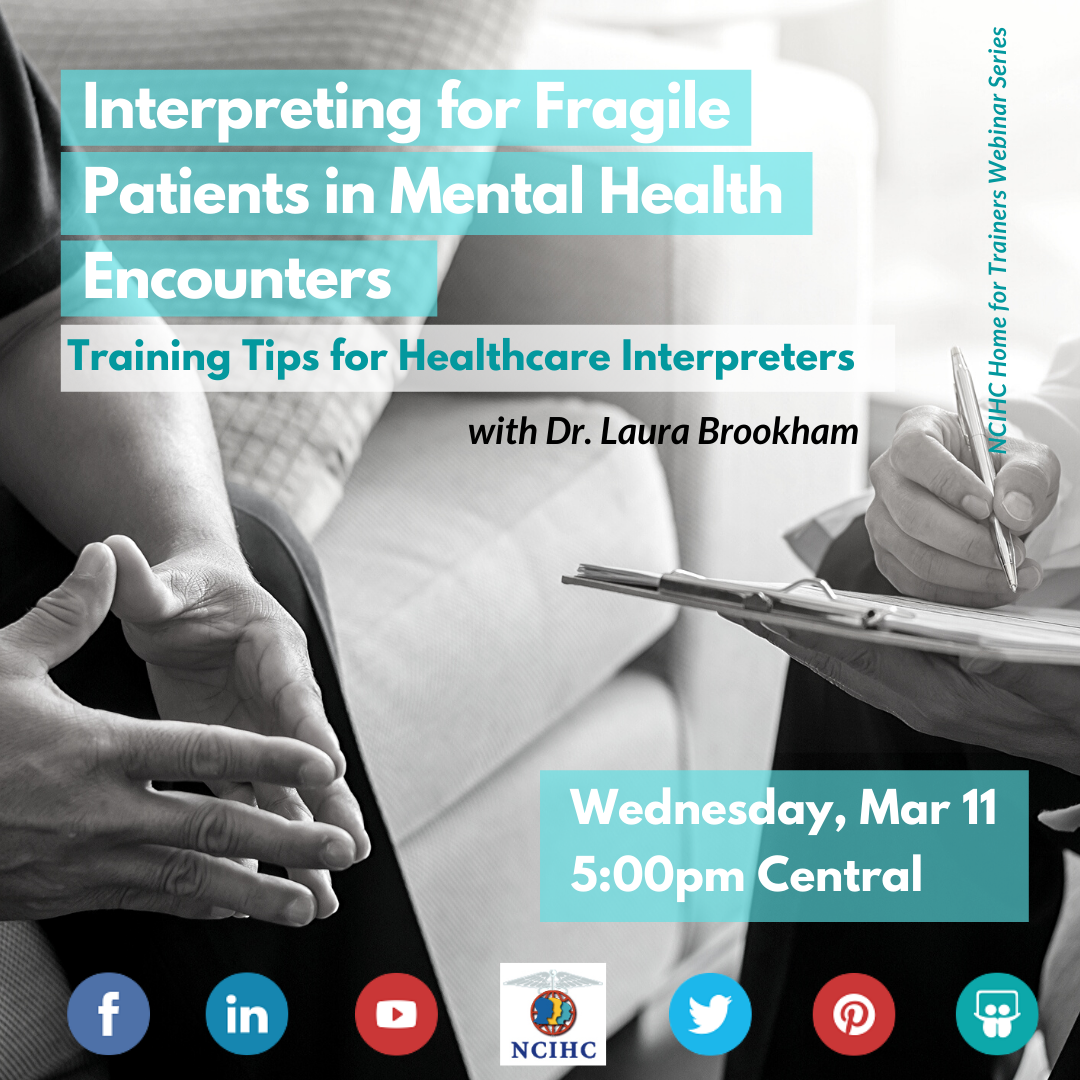Interpreting for Fragile Patients in Mental Health Encounters Training Tips for Healthcare Interpreters
This webinar will include a discussion with two individuals who work in the mental health field and rely on interpreters to facilitate interactions with non-English-dominant clients. This is an important topic due to the relatively new involvement of psychologists as expert witnesses during the immigration process, increased sensitivity to language and cultural factors during criminal legal cases, as well as the broadening demographics of other individuals utilizing mental health services. Historically there has been a significant lack of mental health services available to individuals who do not speak English. Finding ways to meaningfully assist this underserved population has become important as it relates to basic human rights as well as legal rights, and adjusting services to reach a broader audience in an ethical manner is a current objective in the mental health field.
Learning Objectives:
- Trainers should be able to help students differentiate the different possible roles of a mental health provider in different settings, and identify a broad range of locations where interactions might occur.
- Trainers should be able to help students understand the challenges and limitations experienced by mental health professionals when working with patients/clients who do not speak English.
- Trainers should be able to help students clarify their role in a mental health interaction, and how to increase their effectiveness while improving communication for all involved; including, but not limited to, pre-session, type of interpretation, additional information that might be helpful to the mental health professional, and things that might impede the provider’s goals.
About the presenter:
Dr. Laura Brookham is a licensed psychologist in the State of Arizona. She earned her Doctorate of Psychology in clinical psychology in 2011 from the Arizona School of Professional Psychology.
She has worked with survivors of trauma since 1999 in a variety of settings and has trained community members, law enforcement professionals, lawyers, medical professionals, and chemists in various aspects of mental health. She has conducted diagnostic interviews, planned treatment, and provided psychotherapy for individuals with serious mental illnesses, developmental disabilities, and cognitive impairments. She has repeatedly participated in legal competency and restoration training for mental health professionals provided by the Arizona Supreme Court. Dr. Brookham provides expert mental health evaluations for other legal procedures including seriously mentally ill (SMI) determinations, guardianship, citizenship, and numerous immigration matters. She has participated in specialized training from HealthRight International in the assessment of the psychological factors resulting from torture and has volunteered for this organization.
She was an adjunct and core faculty member at a local graduate school where she taught a number of assessment and diagnostic courses and provided individual supervision to graduate students.
With over ten years in private practice, she currently completes forensic assessments (cognitive, personality, neuropsychological, and risk of violence) and has been deemed an expert witness in Arizona Superior Court and in Federal Courts (immigration and criminal).
Dr. Brookham is a Certified Treatment Specialist for Diverse Populations (CTSDP) and has completed numerous additional trainings for working with culturally diverse individuals. She a member in good standing with the American Psychological Association (APA) and the Arizona Psychological Association (AZPA).
|



